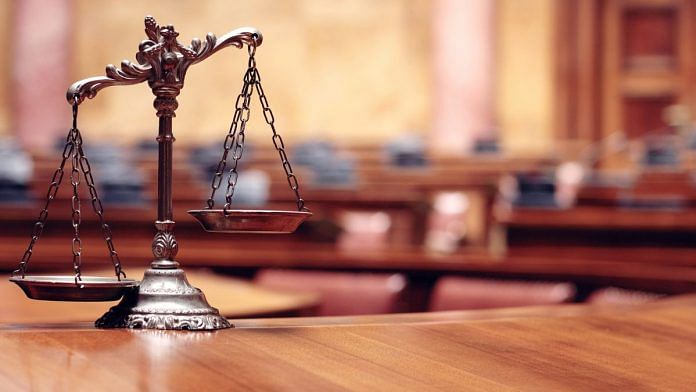Senior SC judge’s scathing letter to the CJI and fellow apex court judges highlights concerns about the executive’s interference in the judiciary.
New Delhi: Justice J. Chelameswar’s letter to Chief Justice of India Dipak Misra has sparked yet another debate on government interference in the judiciary.
In the scathing missive, Chelameswar calls upon all 25 judges of the apex court to discuss the issue in a full-court session.
Chelameswar wrote the letter after the Karnataka High Court initiated an inquiry against senior district and sessions judge P. Krishna Bhat on the Centre’s request, after the Supreme Court collegium recommended his elevation as a high court judge. The inquiry has since been cancelled.
ThePrint brings you the key issues flagged by the judge:
On the executive’s interference
- We, the judges of the Supreme Court of India, are being accused of ceding our independence and our institutional integrity to the executive’s incremental encroachment.
- The executive is always impatient and brooks no disobedience even of the judiciary if it can. Attempts were always made to treat the chief justices as the departmental heads in the secretariat. So much for our “independence and preeminence” as a distinct state organ.
- I do not think any of us disputes that elevating a person to be a judge of a high court is a constitutional concern involving two authorities: the Supreme Court and the executive. The role of high court ceases with its recommendation. Any correspondence, clarificatory or otherwise, has to be between these two authorities.
- To my mind, I could recollect no instance from the past of the executive bypassing the Supreme Court, more particularly while its recommendations are pending, and asking the high court, as if it were an interdepartmental matter, to look into the allegations already falsified and conclusively rejected by us. Asking the high court to reevaluate our recommendation in this matter has to be deemed improper and contumacious.
- Let us also not forget that the bonhomie between the judiciary and the government in any state sounds the death knell to democracy. We both are mutual watchdogs, so to say, not mutual admirers, much less constitutional cohorts.
On the government ‘sitting on files’ instead of accepting or rejecting them
- In the meanwhile, acting on the recommendations of the Karnataka High Court collegium, we recommended his (P. Krishna Bhat) name, along with five others from the service category, for elevation. At that time we were aware of the allegations but we consciously and rightly disbelieved them. Surprisingly, the government selectively withheld his elevation and accepted that of the remaining five, though all the five are juniors to Shri Krishna Bhat.
- If the government had any reservations or misgivings about Shri Krishna Bhatt’s nomination, it could have sent back the recommendation for our reconsideration — a well-established though long forgotten practice. Instead, it sat tight on the file. In other words, our recommendation still retained its validity and legitimacy.
- For some time, our unhappy experience has been that the government’s accepting our recommendations is an exception and sitting on them is the norm. “Inconvenient” but able judges or judges-to-be are being bypassed through this route.
On chief justice of Karnataka HC reopening investigation against judge P. Krishna Bhat
- The chief justice of the Karnataka High Court has been more than willing to do the executive’s bidding, behind our back.
- I read with dismay and disbelief the “confidential report” sent to the Hon’ble Chief Justice by Shri Dinesh Maheswari, the Chief Justice of the Karnataka High Court. To begin with, it was unasked for. Second, it is uncalled for. The confidential report blatantly records the impropriety of the executive directly contacting the high court to reassess a collegium recommendation of the Supreme Court.
- We only have to look forward to the time, which may not be far-off if not already here, when the executive directly communicates with the high courts about the pending cases and orders to be passed. We can be happy that much of our burden is taken away. And an Honourable Chief Justice like Dinesh Maheswari may perhaps be ever willing to do the executive’s bidding because good relations with the other branches are a proclaimed constitutional objective.
On holding a full-court meeting
- I am of the opinion that this matter is now ripe for the consideration of the full court on the judicial side if this institution really is to be any more relevant in the scheme of the Constitution.
- Since we are a precedent-oriented institution, I may be pardoned for quoting a precedent to the Master of Roster that it was exactly a similar letter written by the then union law minister which sparked up a judicial debate in S.P. Gupta (case).







Anyone – including the great man himself – who questions the efficacy of the collegium should look at Justice Chelameswar.
It is heartening to note that some of our honourable judges are standing up to the aggressive executive. Long live our domocracy. This makes us proud to be Indians.